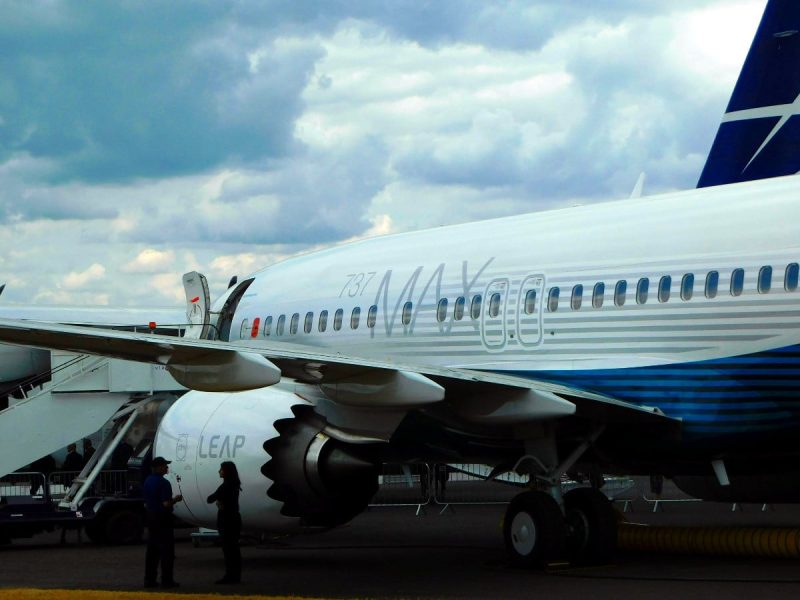The inspections of the Boeing 737-Max-9 aircraft ordered by the US Civil Aviation Administration have revealed a frightening picture. In the United States of America alone, loose screws and other quality defects were found on several machines.
At the weekend she took care of it Emergency landing of one of Alaska Airlines operated Boeing 737-Max-9 caused a stir. The panel behind which an emergency exit was “hidden” came loose during the climb, leaving a hole in the fuselage. The pilots managed to make an emergency landing. Afterwards, at least two smartphones belonging to passengers who were on board were found on the ground. These are said to have largely survived the fall from a height of around 5.000 meters.
The FAA reacted immediately to the incident and temporarily grounded all identical aircraft from flying. The operators were instructed to carry out extensive inspections before the next flight. United Airlines and Alaska Airlines, among others, found what they were looking for. Specifically, loose screws and other safety-relevant quality defects were found. According to their own information, a report was immediately sent to the FAA and the NTSB.
United Airlines writes in a statement that several Boeing 737-Max-9s are affected by this newly discovered problem. The loose screws or bolts were immediately secured by our own technical staff. The aircraft would then have been declared “fit to fly,” according to the carrier. Local media write that at least five units at United alone are said to be affected by the quality defects. Alaska Airlines also found what they were looking for, but they are less specific. They discovered “poorly secured equipment” in some Boeing 737-Max-9s and have since remedied the defects themselves.
It is also noteworthy that the Indian Boeing 737 Max operators have been instructed by the local civil aviation authority to carry out appropriate checks. Air India Express, Akasa Air and Spicejet do not claim to have found any problems. The European EASA has adopted the FAA directive, but emphasizes that the EU currently has no B737-Max-9s approved in the affected configuration. Those at Corendon Dutch Airlines would not be affected, as they supposedly do not have any cover plates over the emergency exit, as the additional exit is required due to the dense seating.
In the meantime we also have Turkish Airlines, Copa Airlines and Aeromexico grounded their Boeing 737-Max-9s as a precautionary measure and initiated detailed inspections. The matter could have repercussions for the US aircraft manufacturer, as the history of the Max series is already marked by two fatal accidents a worldwide flight ban embossed. The FAA and Boeing have assured that it is now the safest aircraft in the world, but recent findings in the wake of the Alaska Airlines incident, which fortunately went well for all on board, suggest that acute quality deficiencies remain Boeing or commissioned subcontractors who could manufacture or install the corresponding blades. If confirmed, this could have a significant impact on the industry.







 trail (for them it's free to use)
trail (for them it's free to use)